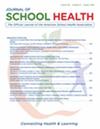Measurement Instruments When Comparing Academic Performance and Physical Activity: A Comprehensive Systematic Review
Abstract
BACKGROUND
This study offers a comprehensive review of academic performance measurement instruments in physical activity and education settings, aiming to provide a comprehensive list of tools used for measuring academic performance in relation to variables associated with physical activity.
METHODS
Academic performance outcomes, including cognitive skills, attitudes, academic achievement, and academic behavior categorized by CDC, were investigated using specific keywords in search engines between 2000 and June 2022, with 233 articles (describing 220 studies) included.
RESULTS
Participant demographics, mainly elementary students, displayed variability. The review found that 37.3% of studies measured cognitive skills and attitudes (primarily attention), 57.3% assessed academic achievement (GPA, subject scores, or standardized tests), and 15.9% evaluated academic behaviors (mostly on-task/off-task behaviors). Various instruments were employed, notably those measuring attention, intelligence, memory, and attitude. Positive associations were found in 63.4%, 78.6%, and 85.7% of studies for cognitive skills, academic achievement, and academic behavior, respectively.
CONCLUSION
This literature review highlights the prevalence of studies on academic achievement, diverse cognitive skills instruments, and a focus on attention. Despite predominantly positive relationships, some studies reported non-significant or negative associations, particularly for cognitive skills. Future research should emphasize these areas using reliable instruments.

 求助内容:
求助内容: 应助结果提醒方式:
应助结果提醒方式:


